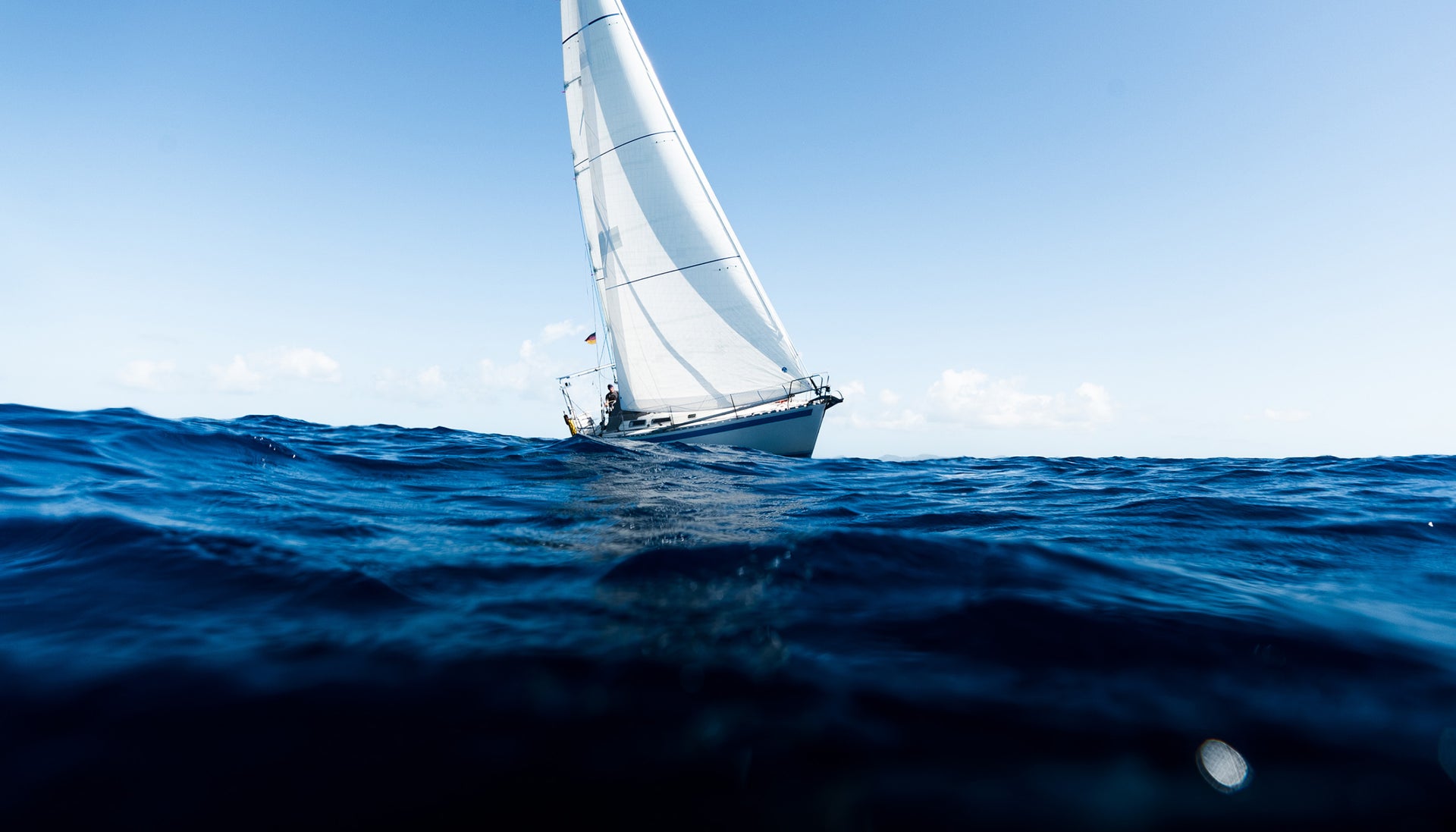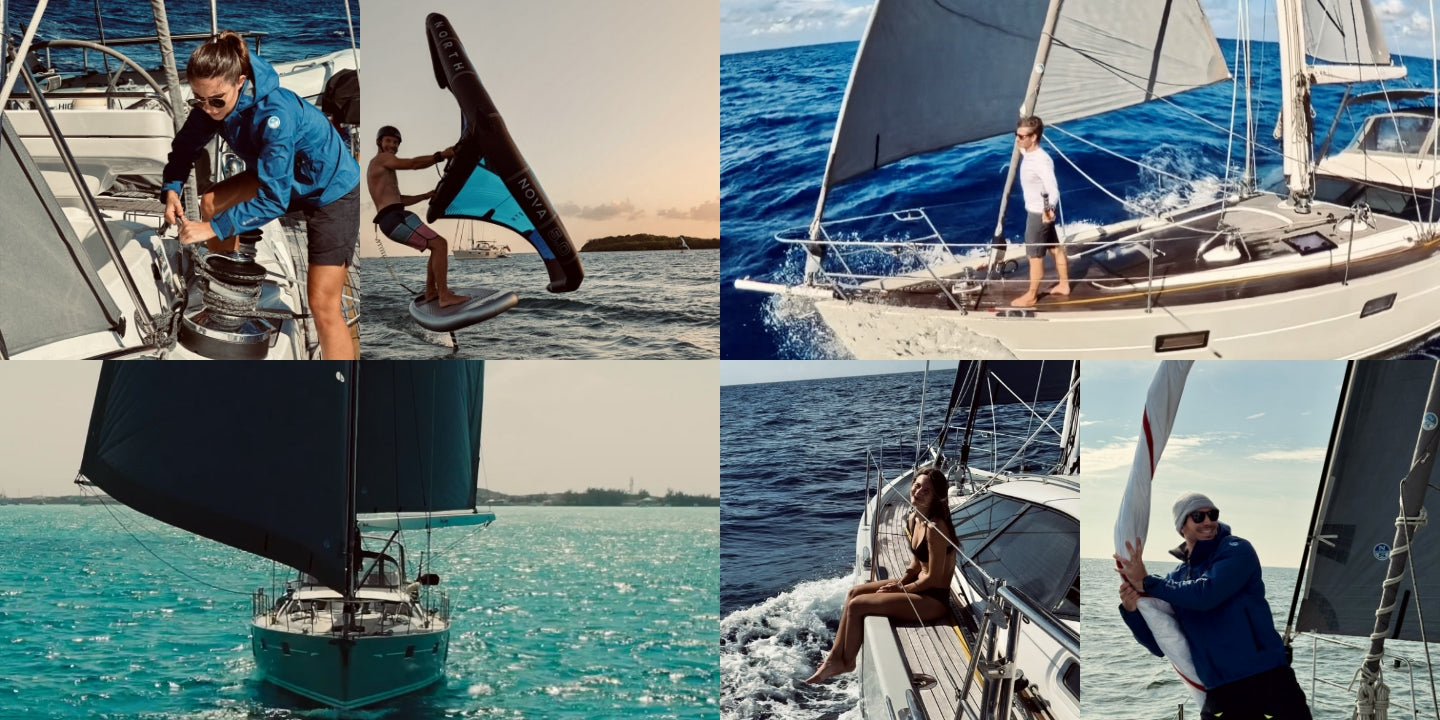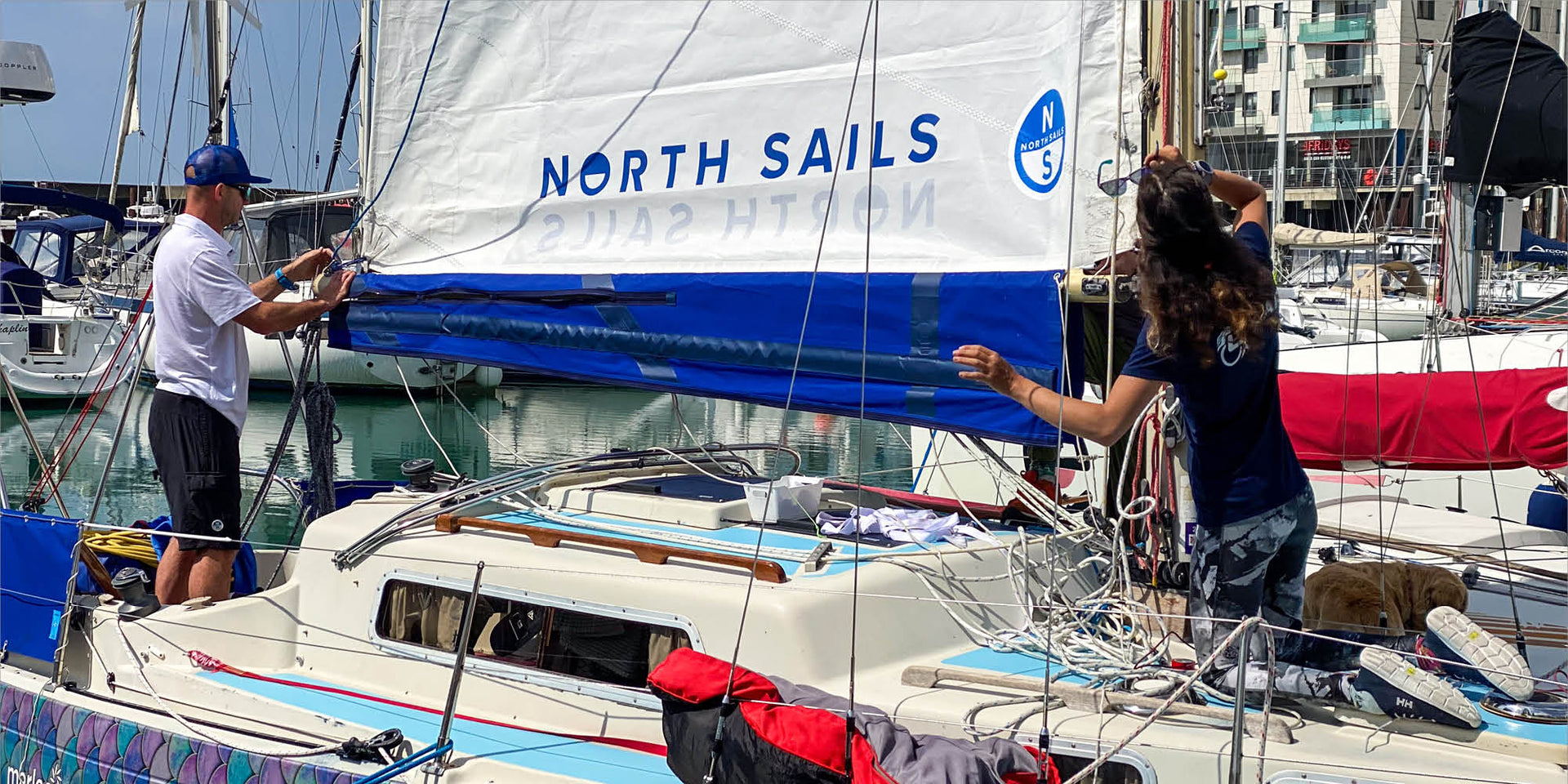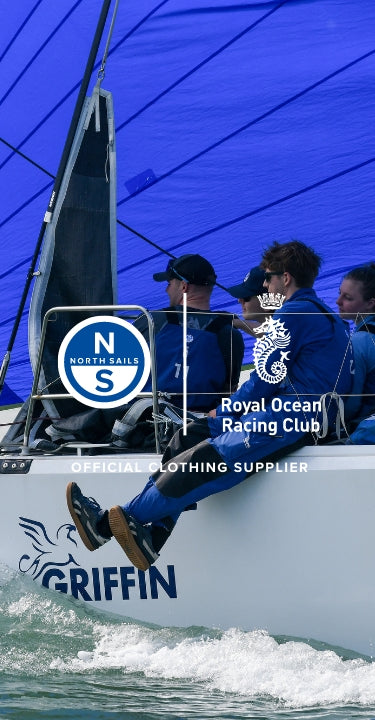DESIGNER SPOTLIGHT: JUAN GARAY & JUAN MESEGUER
DESIGNER SPOTLIGHT: JUAN GARAY & JUAN MESEGUER
How Science And Numbers Guide North Sail Design
For the past decade, both Juan Garay and Juan Meseguer have been sought after by the most competitive inshore Grand Prix teams because they combine sailing experience and sail design expertise. Juan Garay works closely with the TP52 team Azzura and has worked with America’s Cup team Artemis Racing. Juan Meseguer has been a designer since 2000 and helped BMW Oracle Racing win the 2010 America’s Cup.
Today the two Juans are at the vanguard of ground-breaking monohull R&D, because the TP52 class is serving as a test and training platform for potential America’s Cup teams. Much of this development work happens behind the scenes at North Sails, powered by the North Design Suite. With this specialized software, the North design team is able to analyze performance in the most efficient way possible: on the computer.
Today North designers use the VPP tool within the North Design Suite to investigate how the changes they make to their sail designs impact the sailing performance.
“We’re applying high-end technology to aid people in making decisions. The VPP tool allows us to organize all of the inputs to the yacht’s performance in one model.,” explained JB Braun, Head of Design and Engineering at North Sails.
“How do we design the sail? What sails do we put together for the best performance package? What impact do different designs have on boat speed? VPP allows us to answer all these questions. Juan G. and Juan M. are using the VPP tool to help teams improve their performance with better-designed sails.”
The advantage of working with VPP is that North designers can deliver a more optimized inventory from the start. “We remove a level uncertainty that you can not achieve without the tool,” remarked Juan G. “We run tests to see the cause and effect of different variables. The tool cuts down on the experimenting and guesswork of a large test sail inventory. VPP gives North designers better information to deliver more accurate designs before the boat hits the water. An inventory designed with good VPP saves a team budget, but also valuable time because you are working with sails that we feel already have a head start.”

“The TP52 is an example of the most competitive fleet that we have right now,” says Juan Garay. “And it’s like a football game because everything is moving so quick and hectic. It’s very important to be part of the sailing team, to understand what they want.”
Juan G. recently wrote a paper entitled Quantifying Gennaker Performance by Virtual Wind Tunnel-VPP simulation in the TP52 Class. “The purpose of this new process is to have the ability to give a quick answer in a short period of time. North Sails Virtual Wind Tunnel is used to generate sail force data that in turn powers the VPP,” he explains. Combining two tools within the North Design Suite provides quicker results for initial performance analysis.
Our first question for Juan G. was to translate the article from designer-speak to something our customers could digest. “We can go into very deep studies, but sometimes the full analysis is not needed and we want to have an answer in two or three hours,” he says. “I cannot tell you exactly if

North Design Suite Importance
Juan G. says the North Design Suite has industry-wide impact. “While the development in the TP52 fleet is what makes the news, the impact of this work is transferred to all sails that North designs. We have tools to help make any boat fast, tools like VPP, Membrain™ and Flow™. We can help designers build better boats through our Design Services department, we can improve a boat’s performance, and we can help sailors improve trimming of the sails and their setup. All of this is made possible by using the North Design Suite.”

Juan Meseguer agrees the software is very important to North’s leading role in the industry.
“There are a lot of good sail designers out there who do not work for North Sails. They’re good competition for us because we cannot sleep. But our access to the North Design Suite is unique to our company and allows us to deliver more exact sails, while also limiting the amount of ‘test’ sails a program needs to purchase.”
How important is the North Design Suite to the work Juan G. and Juan M. are doing? “Everything goes through the North Design Suite. We use it daily,” says Juan G. “It is the best sail design software. There’s nothing even close to it on the market. We are good designers, but the software is a big part of how good we are.”
“Sail designers are tailors,” he continues. “Every sail is unique. Our job is to make a sail fit perfectly on the yacht. It is essential to take and input the proper measurements into the software. Whether we have AutoCAD drawings for a new project or exact measurements for older boats, getting it right is key to getting the sails to fit. Beyond that, there are variables: is the boat heavy or light, are we dealing with a carbon or aluminum mast, etc. With the 52’s we have a lot of detail, as specific as where the jib tack will be placed. The more detail we have, the better we can design the sail.”
Design Team Collaboration
Both Juan’s also mention collaboration among 80 experienced designers as a significant company strength. A designer working on a multihull project in North America can employ the expertise of a designer in France who’s worked on projects for Francois Gabart’s MACIF and Thomas Coville’s Sodebo. “Someone really specialized can speed up any sail designer on the specific task or specific boat,” Juan G says.
“I can ask any other sail designer in the company and they can give me the best starting point. That’s the strength of North.”
Juan M. describes how collaboration helped move the entire TP52 fleet forward in 2017. “We exchanged all our ideas and a lot of experiences throughout the season. We shared a lot of good ideas that led to next steps of design, and we also debriefed what went wrong. Which boats were fastest in which conditions, which designers worked best for which teams, etc. Everything was independent during the season, but we all come together in the end and agree on next season’s ‘baseline’ package. The baseline is used for new teams who are coming into the class for the first time. We have very high standards, and I am confident any team could be competitive with these designs.”
The North design team can also bring together an unprecedented depth of experience to solve a specific problem. At a recent meeting, nine designers focused on optimizing the North Design Suite for the America’s Cup monohull designs that will soon be announced. Juan M. points out that;
“Nine is more than other brands have on their entire staff, but it’s only a fraction of the North design team. Add up their cumulative experience, knowledge, and ideas, and it’s no wonder why North Sails has become the authority on sail design.”






